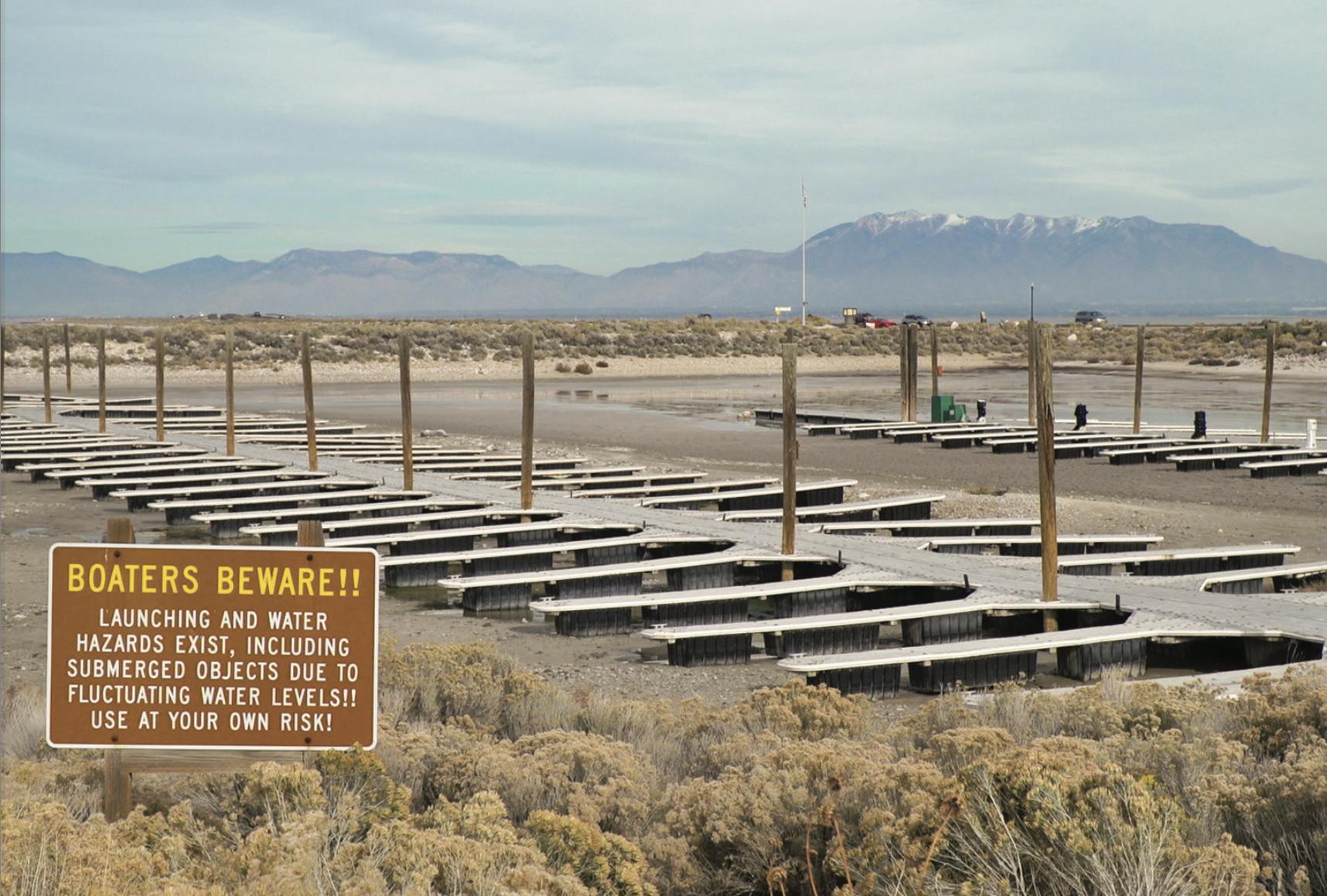A new Report Card examining nearly 20 legislative actions during the 2024 Utah Legislative Session led to a D- grade for Utah legislators’ failures to protect the Great Salt Lake. Not only did Utah legislators fail to address critical water needs at the Lake, several key bills they passed will actually harm the Lake, most notably SB 211.
SB 211 was the most destructive water bill of the 2024 legislation session. It is an anti-democratic bill that sets up a council of unelected staff from Utah’s four largest water districts and the Division of Water Resources. This council is exempt from transparency laws, granted the power to recommend how $230 million in taxpayer funds are appropriated, and designated as advisors to the Governor, Senate President, and House Speaker to pitch new legislation to these politicians.
Since these four water districts and the Utah Division of Water Resources are the proponents of $4-5 billion Bear River Development and the proposed $3-5 billion Lake Powell Pipeline, alongside other destructive water diversion proposals, it’s likely this council will use their new powers to advance these water projects in secret. SB 211’s many flaws, poor presentation, and lack of debate earned it an F.
Legislative Report Card Methodology
To produce the report card, the Utah Rivers Council tracked and analyzed every water related bill, amendment, and substitute throughout the session. Staff members listened to committee debates, spoke with legislators, got input from stakeholders, and conducted fact-checking and research to determine the broader context around each measure. Our staff lobbied during the session in person to try and influence the outcome of many bills.
Bills were separated into high impact and lesser impact categories and graded on a traditional A to F scale, with grades reflecting two main factors: the quality, robustness, and truthfulness of a bill’s presentation and debate; and the likely impact of the legislation itself, where A and B represent a positive impact, C represents a neutral or “mixed bag” impact, and D and F represent net negative impacts. The report card also takes into account good bills that failed to pass, appropriations, and pressing water issues that were unaddressed in the 2024 session.
Altogether, the report card grades and summarizes 20 bills, including HB 280, HB 453, SB 18, SB 57, SB 211, and many others. The Utah Rivers Council tracked nearly 40 water bills and legislative actions during the 2024 legislative session.
Please Share the Report Card with Your Friends
Over the last three legislative sessions, the Utah Legislature has failed to take the steps necessary to raise Great Salt Lake levels. In spite of their failures, there is a massive effort to misinform Utahns into believing they have implemented meaningful steps to raise the Lake. Although this propaganda has paid off for proponents seeking to divert the waters of the Great Salt Lake, water experts who understand water policy outside Utah know the Beehive State is decades behind other states in implementing a sustainable water future for Utah's aquatic ecosystems.
A ProPublica story documents Utah's failures to embrace meaningful water conservation policies over a two decade time frame as the Great Salt Lake declined.
The Great Salt Lake needs 8 million acre-feet of water - that's equivalent to the annual water use of every man, woman and child in every city in the Great Salt Lake Basin, plus every farmer's annual water use in the Basin - for four straight years!
We need more than lip service and press conferences on the shores of the Lake from Utah's legislative leaders. These leaders refuse to listen to the public to learn what the Great Salt Lake needs and are only listening to high-paid lobbyists wanting to spend billions of dollars on destructive new water diversions. We need real action and accountability to save the Great Salt Lake.

